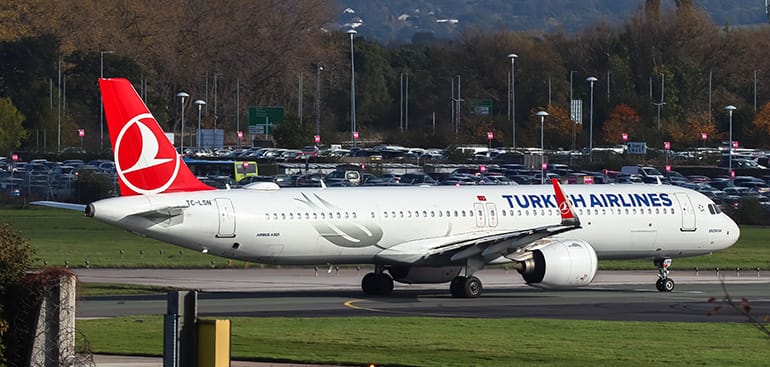
By Mike Malik, Chief Marketing Officer at Cirium
I’m very excited to be headed to IATA’s annual meeting with my Cirium colleagues. The fact that it’s in Istanbul is especially exciting. The event is a perfect occasion to celebrate one of the airline industry’s most dynamic markets.
Ten years ago, in 2013, airlines scheduled roughly 115 million seats to and from Turkey’s airports, according to schedule data from Cirium Diio, our industry-leading airline analytics system. This year, based on current schedules, they will have just shy of 200 million. That’s growth of more than 70%! Just for comparison’s sake, seat counts to and from the United States rose barely more than 20% over the past decade.

Who ever imagined ten years ago that Turkish Airlines would one day be flying to cites as geographically diverse as Mexico City, Cape Town, Vancouver, and Jakarta? It now has destinations such as Denver, Sydney, and Rio de Janeiro in its sights. The low-cost carrier Pegasus Airlines, whose growth and success have been no less spectacular, will fly a remarkable 58% more international seats this summer (Q3) than it did before the pandemic. SunExpress, partly owned by Turkish Airlines, is also growing rapidly. Corendon Airlines is an important competitor as well.
Turkey, furthermore, is an increasingly strategic market for airlines based elsewhere in the world.
Diio data shows European low-cost carriers like EasyJet and Jet2 as some of the country’s largest foreign airlines. Carriers from Central Asia and the Middle East are likewise big players in the Turkish market. More will certainly come as the market develops.
As we head to Istanbul for the IATA gathering, it’s amazing to think about how large an airline market the city has become. Istanbul’s main airport, which opened in 2018, is now one of the world’s busiest.
An analysis using our Diio data shows that Istanbul IST has more scheduled seats for this year’s third quarter than any other airport except Atlanta, Dubai, and Tokyo Haneda. Yes, it even has more seat capacity now than London Heathrow!
Istanbul’s secondary airport (Sabiha Gökçen International, or SAW) is certainly no afterthought. Diio figures show it as the 57th busiest airport in the world by seats this summer, up from 82nd ten years ago. Antalya, furthermore, is just two notches below Istanbul in this year’s summer rankings.

Thanks to favorable geography, Turkey is a relatively short flight from a large portion of the world’s population. The country’s airlines are buying lots of planes to take advantage, making it a critical market for both Airbus and Boeing. Cirium’s Fleets Analyzer tool shows that Turkey’s four largest airlines (Turkish, Pegasus, SunExpress, and Corendon) today fly nearly 570 aircraft collectively. That’s more than double what they flew ten years ago.
As I’m writing this in late May, Turkish Airlines appears to be on the verge of another giant aircraft order. It said in April that it’s looking to acquire (including options) no fewer than 600 new planes, 200 of them widebody.

Turkey’s airlines are working hard to take advantage of Istanbul’s growing importance in the world of aviation. They’re not just growing rapidly. They’re also investing in customer service, new aircraft, employee development, sales and marketing, loyalty benefits, digital transformation, and environmental sustainability. Many have donated generously to earthquake relief funds.
As we gather for IATA’s event, here’s recognizing the remarkable growth of Turkey’s airline industry. It looks like there will be lots more to come!
BE SURE TO FOLLOW CIRIUM TODAY FOR THE LATEST INSIGHTS AND ANALYSIS ON THE EVER-EVOLVING GLOBAL AVIATION INDUSTRY.
























































